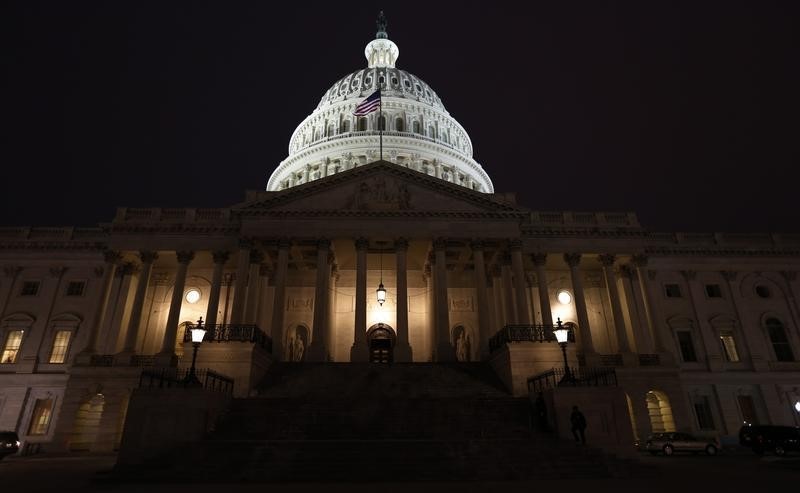By David Lawder
WASHINGTON (Reuters) - In a test of party unity, Republicans in the U.S. House of Representatives on Wednesday are set to vote on the federal budget, using an unusual format meant to overcome lingering internal disagreements over defense spending.
Known as a "Queen of the Hill" vote, the process will let lawmakers vote on several budget alternatives. The idea is to minimize the chances of not passing a budget at all, which would call into question Republicans' ability to govern now that they control both houses of Congress for the first time since 2006.
Any budget passed by the House would have to be reconciled with the Senate, which is due to vote on Thursday. In any case, the non-binding resolutions would not become law, though they would influence later spending bills and political campaigns.
"A Republican budget will prevail as the top budget, but which one we coalesce around is less certain," said Representative Kevin Cramer, a North Dakota Republican.
Republicans are divided over defense spending, with fiscal conservatives wanting to maintain "sequester" statutory spending caps, and defense hawks wanting to boost spending on the military amid heightened global threats.
Two versions to be put up for vote will come from Republican House Budget Committee Chairman Tom Price. One would add $36 billion to an off-budget war account above the amount sought by Democratic President Barack Obama, but would require Congress to seek offsetting savings.
Another version of Price's budget, favored by House Republican leaders, would add $38 billion in war funding without offsets. Both plans would cut domestic spending over 10 years by $5.5 trillion, aiming to eliminate deficits by 2024.
The House will also vote on a budget from fiscal conservatives. It would slash domestic spending by $7.1 trillion over 10 years and alter spending caps to push more money to the core Defense Department budget.
Three alternatives from Democrats also will be put to a vote, but are doomed to defeat in the chamber, now controlled by the largest Republican majority since 1947.
Under the seldom-invoked "Queen of the Hill" parliamentary rules, if two of the Republican budgets achieve a majority, the one with the most "yes" votes prevails. If there's a tie, the one presented last wins.

Republicans regard passage of a budget as important because budget rules would allow them to pass a repeal or replacement of Obama's signature health care reform law later this year with only a simple majority of Republicans in the Senate.